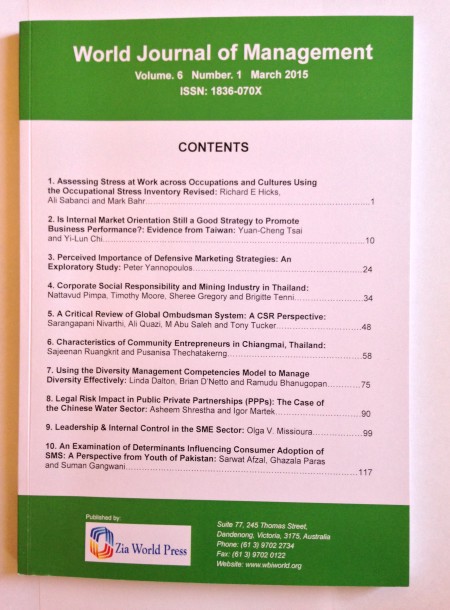Leadership & Internal Control in the SME Sector
Leadership & Internal Control in the SME Sector
This article outlines the details of an empirical study into the perceptions of Small to Medium-sized Enterprise (SME) directors regarding the concept of leadership and the interpretation of the concepts of conceptual models in the light of qualitative analysis. The study is based on a pre-test conducted with five scientists and testing conducted with eighteen SME directors by way of in-depth interviews. This study supports the external validity of the conceptual model applied, based on The Theory of Reasoned Action and is an exploratory study, consisting of qualitative, in-depth interviews.In accordance with their opinions, the scientists‟ concepts of leadership formed the independent determinants for the Internal Control (IC), according to the Committee of Sponsoring Organisations of the Treadway Commission ‘COSO’ Internal Control – Integrated Framework ‘ICIF’ (1992), on the basis of behavioural and normative beliefs. However, the SME directors recognised the direct causal relationship between their concepts of leadership and IC activities (behaviour). The results of the testing of the external validity of the conceptual model primarily indicated that in selecting the determinants for effective and efficient changes in behaviour, the SME directors specifically chose to utilise two concepts of leadership (i.e. characteristics of a businessperson), namely leadership style and commitment, as determinants of the decision-making process. The scientists primarily chose the combination of leadership style and communication. The choice of IC components by the SME directors differed from that of the scientists.JEL Codes: F34, G21 & G24

